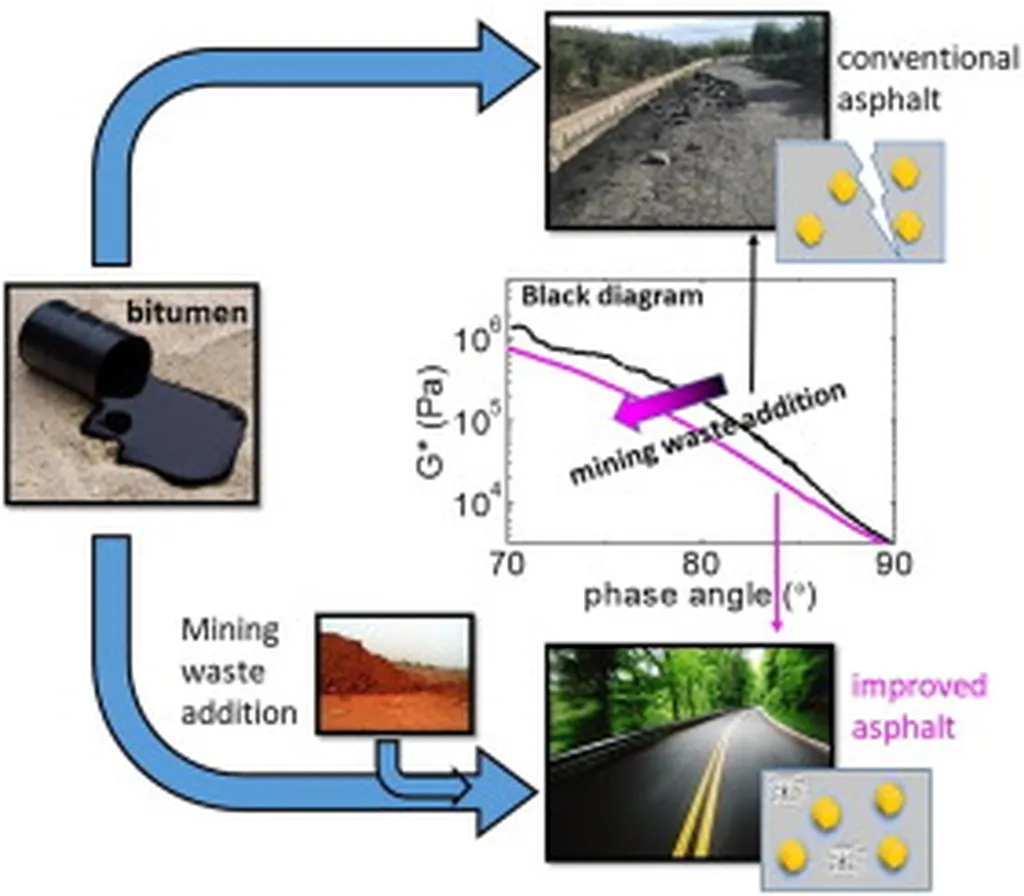In the relentless pursuit of durable and sustainable infrastructure, a groundbreaking study led by Guojing Huang from Chang’an University in Xi’an, China, has unveiled a promising approach to enhance the longevity of asphalt binders. Published in the journal *Case Studies in Construction Materials* (translated as *典型建筑材料研究*), the research explores the synergistic effects of calcium sulfate whiskers and polyurethane in asphalt binders, offering a potential game-changer for the energy and construction sectors.
Asphalt binders, crucial for road construction, often face degradation due to thermal oxidative and ultraviolet aging. This degradation not only compromises the structural integrity of roads but also leads to significant maintenance costs and environmental impacts. Huang’s research introduces calcium sulfate whiskers as a reinforcing agent to polyurethane-modified asphalt, aiming to mitigate these aging effects.
The study reveals that the network structure formed by whisker-reinforced polyurethane effectively inhibits the degradation of polyurethane during the aging process. “The whiskers create a protective barrier that significantly reduces the molecular weight changes and morphological alterations in the asphalt,” explains Huang. This results in a substantial improvement in aging resistance, with reductions of up to 76.97% under ultraviolet aging and 51.16% under thermal-oxidative aging compared to base asphalt.
Rheological aging index results further demonstrate that whiskers enhance the resistance of polyurethane to both thermo-oxidative and ultraviolet aging across different temperature domains. However, the study also cautions that excessive whisker content can negatively impact aging resistance at low temperatures, highlighting the importance of optimal dosage.
The commercial implications of this research are profound. For the energy sector, which heavily relies on durable and sustainable construction materials, this innovation could lead to longer-lasting road surfaces, reducing maintenance costs and environmental footprints. “This research provides a fundamental mechanism for designing durable polyurethane-modified asphalt, establishing a framework for sustainable asphalt pavement construction,” says Huang.
The findings not only offer a practical solution to a longstanding problem but also pave the way for future developments in the field. As the construction industry continues to seek sustainable and cost-effective materials, the synergistic aging resistance of calcium sulfate whiskers and polyurethane in asphalt binders could become a cornerstone of modern infrastructure development.
In an era where sustainability and durability are paramount, Huang’s research offers a beacon of hope, driving the industry towards a more resilient and eco-friendly future. The study’s publication in *Case Studies in Construction Materials* underscores its significance and potential impact on the global construction landscape.

